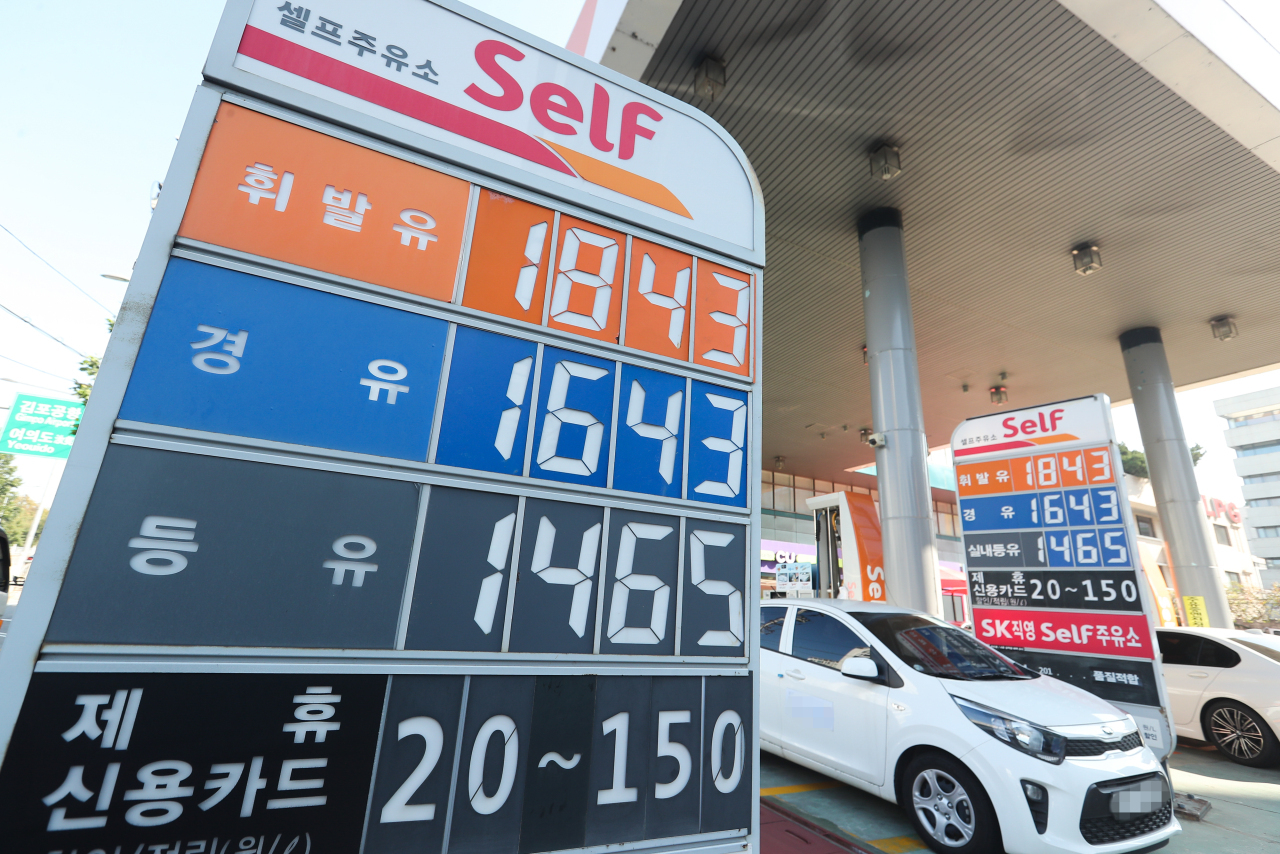 |
(Yonhap) |
South Korea's consumer prices rose at the fastest pace in nearly 10 years in November due to surging energy costs and high prices of farm products, data showed Thursday, underscoring a build-up in inflationary pressure amid economic recovery.
The consumer prices increased 3.7 percent in November from a year earlier, accelerating from a 3.2 percent on-year gain in October, according to the data compiled by Statistics Korea.
Consumer inflation rose 0.4 percent in November from a month ago.
It marked the fastest on-year gain since December 2011, when consumer prices spiked 4.2 percent.
The country's consumer inflation grew more than 2 percent -- the central bank's midterm inflation target -- for the eighth straight month in November. Inflation growth stayed above 3 percent for the second month last month.
The pickup in inflation was mainly attributable to rising oil prices and high prices of agricultural products. Demand-pull inflationary pressure has also built up amid the economic recovery.Prices of petroleum products jumped 35.5 percent on-year, the steepest gain since July 2008 as oil prices surged amid the global economic recovery. Prices of industrial products climbed 3.5 percent, the fastest in 10 years.
Prices of Dubai crude, South Korea's benchmark, averaged $80.30 per barrel in November, up 36.9 percent from a year earlier. South Korea depends on imports for its energy needs.
The impact of a fuel tax cut on inflation was limited as it usually takes time to affect energy prices.
South Korea cut fuel taxes by a record 20 percent on Nov. 12 in a bid to curb inflationary pressure. The measure will be effective until April 30 next year.
Prices of agricultural, livestock and fishery products shot up 7.6 percent on-year, accelerating from a 0.6 percent gain in October.
Core inflation, which excludes volatile food and oil prices, rose 1.9 percent on-year last month.
Prices of daily necessities -- 141 items closely related to people's daily lives, such as food, clothing and housing -- climbed 5.2 percent on-year in November. It marked the fastest on-year rise since August 2011.
Finance Minister Hong Nam-ki said consumer prices may grow at a slower pace in December than this month as oil prices showed signs of stabilization. He also said the impact of fuel tax cuts is expected to be felt starting this month.
The finance ministry earlier said the fuel tax cut is expected to help drive down the inflation rate by a maximum of 0.33 percentage point.
The Bank of Korea (BOK) raised the policy rate by a quarter percentage point to 1 percent last month to tame inflation and curb household debt. The central bank hiked the key interest rate in August from a record low of 0.5 percent.
The BOK raised its 2021 inflation outlook to 2.3 percent from its earlier estimate of 2.1 percent, citing growing demand-pull price pressure and rising oil prices.
The Organization for Economic Cooperation and Development (OECD) on Wednesday revised up its forecast for Korea's consumer inflation to 2.4 percent for this year.
To help ease inflationary pressure, the government plans to freeze natural gas bills for the remainder of this year and will seek to leave public utility charges unchanged until year-end. (Yonhap)








